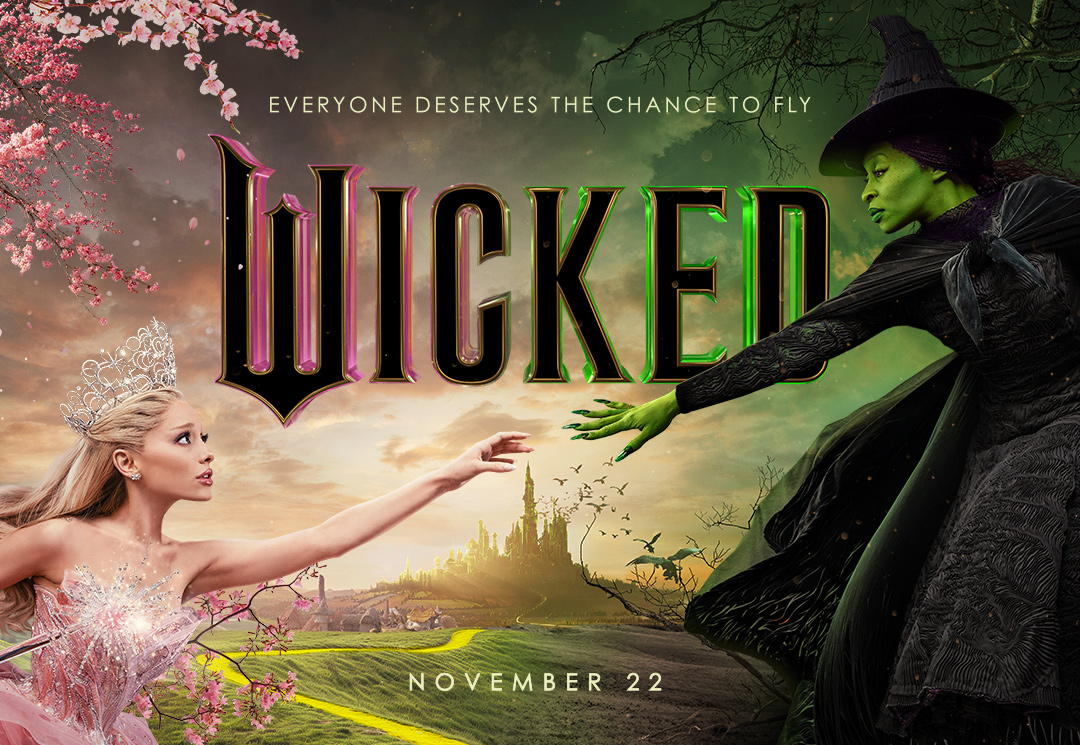What makes someone truly wicked? Is it their actions, or the story told about them? The 2024 adaptation of Wicked doesn’t just take us behind the curtain of Oz;. It pulls the curtain away entirely, exposing a world where truth is malleable, power thrives on illusion, and defiance is an act of moral courage. Beyond its spellbinding songs and breathtaking visuals, Wicked sings a haunting ballad about the dangers of authoritarianism and the power of resistance.
At the center of this cautionary tale is the Wizard, a leader whose charisma masks his sinister consolidation of power. Much like his “Wonderful” anthem proclaims, the Wizard understands that “the most celebrated are the rehabilitated.” His reign is built not on merit but manipulation. He twists narratives to his advantage, using spectacle to cement his rule and propaganda to silence dissent.
The sentient Animals of Oz—once equals among its citizens—become his most tragic victims. Stripped of their rights and voices, they are cast as scapegoats for the instability in Oz, their supposed “threat” used to justify the Wizard’s oppressive rule. By demonizing the Animals, the Wizard twists the narrative to position himself as the protector of order and harmony, even as his actions deepen division and fear. This deliberate targeting of a marginalized group not only consolidates his power but also distracts the citizens of Oz from questioning the true source of their struggles—his own authoritarian control. Their plight underscores how oppression often begins with the creation of an “other,” a strategy as old as power itself, and one that the Wizard wields masterfully to maintain his dominion.
The Wizard’s control over Oz rests on one of the most dangerous tools of authoritarianism: the ability to dictate what is “good” and what is “wicked.” Elphaba, with her green skin and a refusal to conform, becomes his scapegoat. Through carefully constructed lies, he casts her as the villain, painting her defiance as a danger to the safety and harmony of Oz. This distortion is summed up in Wicked’s iconic anthem, “No Good Deed,” where Elphaba laments that no matter her intentions, her actions are always seen as irredeemable. The Wizard doesn’t merely rule Oz—he rules its story.
But Wicked isn’t just about the abuse of power; it’s about the courage to resist it. Elphaba’s journey from misunderstood outcast to defiant revolutionary is a stirring reminder that sometimes, “it’s time to trust your instincts, close your eyes, and leap.” Her transformation is not just physical or emotional—it’s deeply moral. Refusing to compromise her values, she challenges the Wizard’s authority at every turn, knowing full well the cost of her rebellion. In her defiance, Elphaba embodies the ideals of individual autonomy and justice. She chooses to defy gravity, soaring above the constraints of a system that seeks to hold her down.
The brilliance of Wicked lies in how it uses the fantastical world of Oz to explore universal truths about power, resistance, and freedom. The Wizard’s regime thrives on a lie: that safety and stability can only exist under centralized control. Yet his control is fragile, reliant on fear and manipulation to sustain itself. In this way, the Wizard is not just a character but a metaphor for the dangers of unchecked power. His tactics are chillingly familiar in a world where truth is often distorted to serve those in authority.
Elphaba, meanwhile, challenges us to see beyond these illusions. Her resistance forces us to confront uncomfortable truths about our own world: Who controls the narratives we believe? Who benefits from them? And at what cost? As her story unfolds, it becomes clear that the real danger in Oz is not a “wicked witch,” but the Wizard’s ability to convince an entire society to accept his version of events.
The magic of Wicked is that it doesn’t just tell a story; it invites us to question the ones we already know. It asks whether freedom is truly possible in a world shaped by manipulation, fear, and conformity. Like Elphaba, we’re left to wonder: Is it possible to defy the gravity of a system built to keep us grounded? Or is resistance itself the most important act of freedom?
As the curtain falls, Wicked reminds us that the fight for justice doesn’t always come with a triumphant chorus. Sometimes, it’s quieter, found in the choice to reject lies, to rewrite the narrative, and to live “for good”—even when the world refuses to understand.
Through its story of defiance, the film challenges us to see beyond the illusions of power and find the courage to stand, no matter the cost. After all, it’s not the Wizard’s lies that make Oz magical—it’s the people brave enough to expose them.
This piece solely expresses the opinion of the author and not necessarily the organisation as a whole. Students For Liberty is committed to facilitating a broad dialogue for liberty, representing a variety of opinions. If you’re interested in presenting your perspective on this blog, click here to send us your own piece submission!
